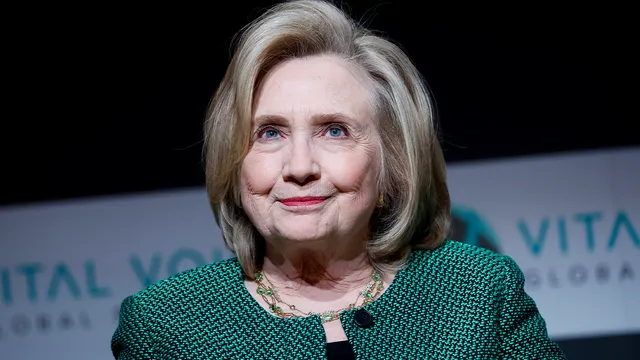
Hillary Clinton criticizes anti-Israel protests on US campuses
2024-09-22 12:48- Hillary Clinton observed a transition from respectful dialogue to aggressive anti-Israel protests at Columbia University.
- She noted that these protests were influenced by external groups rather than being genuinely student-led.
- Clinton emphasized the need for universities to protect free speech while ensuring a conducive learning environment.
Express your sentiment!
Insights
Hillary Clinton, during her reflections on student protests at Columbia University, expressed concern over the shift from respectful dialogue to aggressive anti-Israel demonstrations. She noted that these protests were not genuinely student-led but rather influenced by external groups with pre-planned agendas and funding. Clinton highlighted her experiences in class discussions, where students often lacked historical context regarding the Israeli-Palestinian conflict, failing to recognize significant events that shaped the current situation. Clinton emphasized the importance of factual understanding in discussions about Middle East politics, stating that many students were unaware of key historical moments, such as the events at Camp David in 2000 or the implications of the phrase 'from the river to the sea.' This lack of knowledge, she argued, hindered productive conversations and led to inflammatory rhetoric. She also pointed out that the atmosphere on campuses had improved recently, with a more educational environment compared to the previous year. Clinton asserted that universities have a responsibility to protect free speech while also safeguarding students from harassment and disruptive behavior that could impede their learning. In conclusion, Clinton's observations reflect a broader concern about the influence of outside organizations on student activism and the necessity for educational institutions to foster informed discussions on complex global issues, particularly those related to Israel and Palestine.
Contexts
Hillary Clinton recently criticized anti-Israel protests occurring on U.S. campuses, amidst escalating tensions in the Middle East. Since the Hamas attacks on Israel on October 7, 2023, the conflict has intensified, resulting in over 40,000 Palestinian casualties and military actions extending to Lebanon against Hezbollah. This situation has drawn international scrutiny, particularly towards Israeli Prime Minister Benjamin Netanyahu, who faces potential war crime allegations. Clinton's comments come at a time when the U.S. administration is facing criticism for its perceived bias and lack of effective intervention in the ongoing conflict. The complexities of the situation have been highlighted by public figures, including Bill Maher, who criticized Vice President Kamala Harris for her remarks on Israel, calling for more substantive dialogue regarding the conflict. The backdrop of these protests and criticisms reflects a broader debate about U.S. foreign policy in the region and the implications of public discourse on sensitive international issues. Clinton's stance underscores the challenges faced by political leaders in addressing the multifaceted nature of the Israeli-Palestinian conflict and the reactions it provokes domestically. As tensions continue to rise, the discourse surrounding Israel and its actions remains a contentious topic in American politics, influencing public opinion and the political landscape as the country approaches the next election cycle.